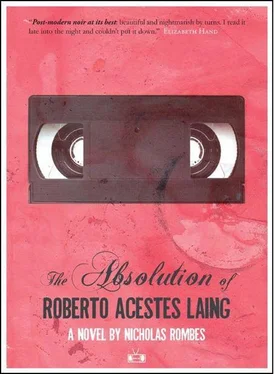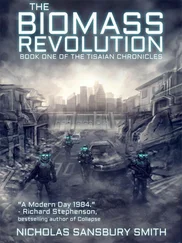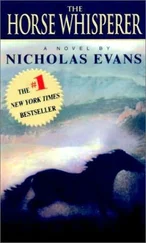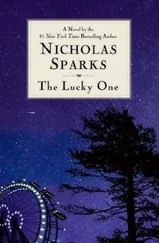“ It wasn’t always like what? the off-camera voice asks Ephraim again.
“ This , he says, fumbling to light yet another cigarette, nodding to something out there , as if the forest itself were an entity. He’s at a weather-worn picnic table. His shirt is Nirvana-era denim, as if grunge had slipped back in time and caught him up for the three-minute-and-thirty-four-second duration of this tape.
“The old professor, dead now to the world. The very world that he had brought into being. A man of theory , began the letter announcing his dismissal from the university, must be at all times vigilant lest his ideas yield actions hostile to theory itself .
“He’s not particularly eloquent, Ephraim isn’t. It’s only after the fourth or fifth viewing that you realize where the hidden action is. In between the trees. Ephraim’s words are just cover. The sort of bitter, dustbin-of-history philosophizing you’d expect from a man who had predicted punk was the harbinger of a truly revolutionary accelerationist movement, only to see it swallowed like everything else into the networked, invisible machinery of our age.”
Laing stops for a moment, as if he’s heard something. For some reason when I think about it now it seems like he was wearing the scarf again. But he wasn’t. After a few seconds he goes on.
“I watched the tape in Marlene’s basement apartment, with its warped, damp walls, around the time that the Walt Disney film The Black Hole was released on VHS (it had to have been 1980), a movie so overpowered by Maximilian Schell (‘you were monitored ever since our sensors first detected you,’ he intones to Anthony Perkins as if reciting for the first and last time in human history a long lost line from Shakespeare) that the black hole swirling continuously in the spaceship’s monitors becomes an afterthought. The tape was labelled, in black ink, AXXON N . It was my last year in southern Ohio, and Marlene (who also went by Arlene) was a teaching assistant for a professor there in ‘art theory’ (no one knew what that meant) whom I had audited a class with a few years earlier, which was how I met Marlene, who had piercings in her left eyebrow before this became common, and who gave off a sort of Patty Hearst vibe, someone who potentially could be vulnerable and very dangerous at the same time. The next year I would be gone, blasted into the heart of Pennsylvania at a college much larger and indifferent and even crueler than where I was at the time of Black Hole .
“ Wasn’t always like what? the off-camera voice asks again, at which point Ephraim twists out his cigarette on the patchy and slanted picnic table and proceeds to remove from his denim shirt pocket a sheaf of folded yellow papers — obviously his well-worn and now irrelevant research notes — and begins to read. But the wind has picked up and in a gust they fly out of his hands, screen left. He moves faster than you’d expect, leaving the frame, presumably, to chase down the pages. The camera doesn’t follow him but remains fixed on the empty picnic table and the tall pine trees swaying in the sun in the background. And in that background, between the trees, there’s a slight blank spot — a gap — that reminds you of its presence, but just barely. Ephraim returns to the frame, pages recovered.
“ It wasn’t always like this . The nostalgic lament of an ex-academic, or a prophecy disguised as something backward-looking? Ephraim had told us in that art theory class to read between the lines and against the grain . Wasn’t that what Marlene and I were doing now, with this tape? Reading between the lines and against the grain. Wasn’t that what Marlene and I had been doing for years there in southern Ohio, with each other, pretending to meet for the first time each Thursday at the same quiet spot by the flat river, just two people who happen to be there at the same moment? That was our plan, to never let our relationship advance to the point of familiarity, to always be experiencing each other for the very first time, an endless loop of surprise and happiness there on that bright green grass made lush and fertile by the annual spring flooding of the river. Rewinding over and over to that moment, so that in time acting or pretending we had just met felt no different than truly, actually just meeting for the first time.
“And where had it gotten us?
“Once, as a professor, Ephraim had thrown a baseball against a closed classroom window to illustrate the spider webbing effect of narrative in Mrs. Dalloway , but instead of cracking the glass the ball sailed through it cleanly, leaving a hole roughly the size of the ball itself. He lit a cigarette in frustration and then, in anger, flicked it into the front row of students. This was the visible and symbolic beginning of his end.
“He believed in the tunnels. He really did. That they — like the glass he could not transform with a thrown ball — spider webbed beneath these United States, emanating from beneath his feet in that soft border area between Ohio and Kentucky. He assigned his students paranoid, art-themed novels that spoke to this truth. He asked them to underline passages in class, look into each other’s eyes and read them to each other, causing some of them to fall in love, at least for a semester.
“And the VHS tape, AXXON N ., what new chaos does it portend? Already, Marlene and I can feel our brains curdling, a feedback loop growing between us and the TV set. We pause the tape right at the moment when whatever it is that isn’t there emerges from the gap in the forest behind Ephraim, all frame-dragged and distended, like an avalanche of melting pixels.
“ The force of our generation, that’s what it is , says Marlene, pointing the remote at the television like a weapon.
“The front part of my brain doesn’t know what she means, but in the back part of it I do. The tape — and I’ve spent the better part of thirty years trying to rid myself of this thought — the tape can’t seem to shake itself free of the widening gap between the trees, as if that gap had become the subject of the video itself. The gap, it appears when Ephraim leaves the frame to chase down his papers, widening, filling the frame, the blankness pushing against the boundaries of the TV set, cracking it open, expanding slowly against the basement walls. I remember glancing over at Marlene and understanding that everything that we needed in each other was disappearing, evaporating, right there before our eyes as the blank space in that gap widened to expand — impossibly, and yet somehow it was happening — beyond the confines of the television screen itself. The tape cuts back to The Black Hole , right at the moment when Maximilian Schell — playing the Dr. Faustus-like captain of the spaceship, Hans Reinhardt, which also happens to be the real-life name of a Nazi general accused of hostage-taking and murder — refers to one of his robots as ‘Maximilian.’ And then it cuts back to the Ephraim portion. The gap in the forest has opened up, like I said, beyond the confines of the television set and into Marlene’s apartment. There’s a small dot of blood collecting around her pierced eyebrow and when I go to dab it she flinches, the first time she’s ever flinched around me, and I think she flinched because of something to do with that VHS, and the exposed blankness of the screen that took over when Ephraim left the frame. It’s the last time we were together, really. After that the distance between us grew greater, at first just a little bit but then more and more, until we regressed from lovers to friends, and then acquaintances, and then colleagues and then, by the time I left for Pennsylvania, strangers.”
Читать дальше












![Nicholas Timmins - The Five Giants [New Edition] - A Biography of the Welfare State](/books/701739/nicholas-timmins-the-five-giants-new-edition-a-thumb.webp)